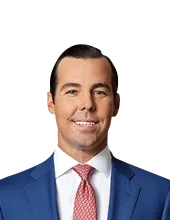
Fighting for burn injury victims.
We fight for burn injury victims to hold negligent parties accountable.
Start Your ClaimThe attorney shown above may not be licensed in your state. To find an attorney licensed in your area, please visit our attorney page.

The attorney shown above may not be licensed in your state. To find an attorney licensed in your area, please visit our attorney page.
Meet Our Burn Injury Lawyers
Our dedicated attorneys handle every detail of your case, fighting for fair compensation and justice while you focus on healing and rebuilding your life.
The attorneys shown in these photos may not be licensed in your state. To find an attorney licensed in your area, please visit our attorney page.
Our Results
Results may vary depending on your particular facts and legal circumstances.
Ways We Can Help
Home & Residential Fires
Commercial Fires
Defective Products
Other Causes, Like:
Learn moreVehicle Fires
Electrical Malfunctions
Flammable Materials
Hot Liquids or Steam
Chemical Burns
Boat Fires
Fuel Gas Fires (Explosions)
Battery Fires
In Their Words
Based on select nationwide reviews.
Injury or damages
Causation
Source of negligence
Steps to Take After a Burn Injury
From immediately getting to safety to seeking medical attention, these 8 steps can help you stay safe, protect your rights, and seek the compensation you deserve.
Fighting For the People
Backed by America’s Largest Injury Law Firm.
$25 Billion
Recovered for clients
nationwide700,000+
Clients and families
served1,000+
Attorneys across
the country1
Click may change your life

The attorney featured above is licensed in Florida. For a full list of attorneys in your state please visit our attorney page.
Results may vary depending on your particular facts and legal circumstances.
Common Fire and Burn Injuries
Thermal Burns
Smoke Inhalation
Chemical Burns
Electrical Burns
Inhalation Injuries
Scarring and Disfigurement
Learn More
Injured and not sure what to do next?
We'll guide you through everything you need to know.
Get answers to commonly asked questions about our legal services and learn how we may assist you with your case.
What should I do immediately after a burn injury?
If you’ve been injured by a burn, it's crucial to take the right steps immediately:
- Seek Immediate Medical Care: For even minor burns, medical evaluation is essential. Severe burns require emergency attention.
- Cool the Burn: For less severe burns, cool the area under lukewarm water to stop the burning process and relieve pain.
- Document the Injury: Take pictures of the burn and keep track of the treatment process. This will be crucial in establishing a claim later.
- Preserve Evidence: If your burn injury was caused by a defective product, hazardous substance, or workplace condition, preserve the product or evidence that could support your case.
- Contact Morgan & Morgan: An experienced burn injury lawyer can guide you through the legal process and help secure the compensation you deserve.
What types of compensation are typically available for burn injury cases?
In burn injury cases, victims may be entitled to several types of compensation to help cover the financial, physical, and emotional toll of the injury. Below are the most common types of compensation available:
Medical Expenses
This includes compensation for all medical bills related to the burn injury, including:
- Emergency room visits
- Hospitalization costs
- Surgery (including skin grafts or reconstructive surgeries)
- Ongoing medical treatments (physical therapy, pain management)
- Prescription medications
- Medical equipment and supplies (bandages, mobility aids)
Lost Wages
Burn injuries can leave individuals unable to work for an extended period of time, and compensation can cover both past and future lost wages. This includes:
- Wages lost during recovery
- Reduced earning capacity if the injury leads to permanent disability
- Compensation for lost benefits (health insurance, retirement savings)
Pain and Suffering
This category compensates for the physical and emotional distress caused by the burn injury. Pain and suffering damages account for:
- Ongoing physical pain and discomfort
- Emotional distress, anxiety, and depression resulting from the injury
- The impact on quality of life, including loss of enjoyment in daily activities or hobbies
Scarring and Disfigurement
Burn injuries often lead to permanent scarring or disfigurement, which can have a significant impact on a person’s appearance and self-esteem. Compensation may be awarded to cover:
- The emotional and psychological effects of living with scars or disfigurement
- The cost of cosmetic procedures to reduce the appearance of scars (if available)
Rehabilitation and Therapy Costs
For severe burn injuries, extensive rehabilitation may be necessary to regain physical function, mobility, and independence. Compensation may cover:
- Physical therapy and occupational therapy costs
- Psychological counseling or therapy for emotional trauma (PTSD, depression)
- Long-term care if the victim is permanently disabled
Loss of Consortium
If the burn injury severely affects relationships (between spouses), the victim’s partner may be entitled to compensation for the loss of companionship, intimacy, and support.
Punitive Damages
In cases where the defendant’s conduct was grossly negligent or intentional (malicious intent, reckless disregard for safety), punitive damages may be awarded. These are designed to punish the responsible party and deter similar conduct in the future.
Property Damage
Fire and burn injuries often result in significant property damage, including the loss of personal belongings, vehicles, and even homes. If your property was damaged or destroyed due to someone else's negligence, you may be entitled to compensation for these losses. To strengthen your claim, it’s important to itemize the contents that were lost or damaged. Providing receipts, photos, or bank statements that show proof of purchase can help establish the value of your belongings and maximize your compensation.
Wrongful Death Damages
If a burn injury results in death, the family of the victim may be entitled to compensation for:
- Funeral and burial expenses
- Loss of financial support
- Loss of companionship and emotional support
- Loss of guidance and nurturing from the deceased
Emotional Distress
Burn injuries can cause significant emotional distress. Compensation can cover the psychological trauma experienced, including:
- Anxiety, depression, and PTSD
- Feelings of helplessness or fear
- Impact on personal relationships and social interactions
Burn injuries can lead to both short-term and long-term consequences, making it essential for victims to understand the full range of compensation options available to them. An experienced burn injury lawyer at Morgan & Morgan can help determine the best course of action and ensure that all aspects of the victim’s recovery are covered.
How does an attorney prove negligence in a burn injury case?
Proving negligence in a burn injury case involves establishing that the responsible party failed to meet a duty of care, and that their failure directly caused the victim's injuries. Here’s a breakdown of how an attorney might prove negligence in such a case:
1. Establishing Duty of Care
The first step is to demonstrate that the defendant owed a duty of care to the victim. Duty of care refers to the responsibility one party has to avoid causing harm to another. In burn injury cases, this duty could be owed in various contexts, such as:
- Employers: Employers are required to maintain a safe work environment, which includes protecting workers from potential hazards that could cause burn injuries (flammable chemicals, faulty electrical systems).
- Manufacturers: Manufacturers have a responsibility to produce safe products and provide adequate warnings about potential risks (consumer products, household appliances).
- Property owners: Property owners are responsible for keeping their premises safe, such as ensuring that fire hazards are minimized and that adequate safety measures are in place (fire exits, warning signs).
- Medical professionals: In healthcare settings, doctors and hospitals are expected to provide care that meets medical standards, which includes avoiding mistakes that could lead to burns or improper treatment of burns.
2. Demonstrating Breach of Duty
Once the duty of care is established, the next step is proving that the defendant breached that duty. This can be done by showing that the defendant acted negligently or recklessly, such as:
- Failure to maintain safety standards: For example, if a company fails to properly inspect or maintain equipment that caused a burn injury (malfunctioning machinery or faulty electrical wiring).
- Defective products: If the injury was caused by a defect in a product (e.g., a poorly designed or manufactured appliance), an attorney will show how the product failed to meet safety standards.
- Inadequate warnings: In cases where a burn injury was caused by a hazardous substance or unsafe product, the attorney will show that the defendant failed to provide sufficient warnings or instructions to prevent harm (a label missing warnings about high heat or flammability).
- Violation of safety regulations: If a workplace injury occurred, the attorney may point to a violation of OSHA (Occupational Safety and Health Administration) regulations, which could show the employer was negligent in keeping workers safe.
3. Causation: Connecting the Breach to the Injury
The attorney must also prove that the defendant's breach of duty directly caused the burn injury. This involves showing a clear link between the defendant's actions or lack of action and the injury the victim sustained. Evidence can include:
- Eyewitness testimony: Witnesses who saw the event leading to the burn injury can help establish causation.
- Expert testimony: Experts (engineers, product specialists, fire safety professionals) may be brought in to testify that the breach of duty directly contributed to the accident or injury. For example, a fire safety expert could explain how improper maintenance led to a fire.
- Accident reports: Police, fire department, or workplace safety reports could provide details on the cause of the injury, supporting the claim that the defendant's actions led to the burn.
4. Proving Damages
Finally, the attorney must show that the victim suffered actual damages due to the burn injury. This can be done by presenting:
- Medical records and bills: These documents show the extent of the injuries and the costs associated with treatment.
- Testimony from medical professionals: Doctors or burn specialists may testify about the severity of the injury, the treatment required, and any long-term consequences.
- Photos and video evidence: Before-and-after photos of the injury, as well as any video footage of the incident, can be powerful evidence of the burn's extent and impact.
- Personal testimony: The victim’s account of their experience can help illustrate the pain and suffering caused by the burn injury, as well as the impact on their quality of life.
5. Using Comparative or Contributory Negligence (if applicable)
In some cases, the defendant may argue that the victim was partially responsible for the burn injury. An attorney will need to address this defense and prove that the defendant's negligence was the primary cause of the injury, even if the victim had some role in the incident. Depending on the state, this may involve demonstrating that:
- The victim’s negligence did not outweigh the defendant’s actions (under comparative negligence laws).
- The victim’s actions were not a contributing factor to the injury (under contributory negligence laws).
Proving negligence in a burn injury case requires a detailed and methodical approach. A skilled attorney at Morgan & Morgan will use evidence, expert testimony, and legal arguments to establish that the defendant’s breach of duty directly caused the victim’s injuries and subsequent damages. If successful, the victim may receive compensation for medical bills, lost wages, pain and suffering, and other losses resulting from the burn injury.
Why should I hire Morgan & Morgan?
At Morgan & Morgan, our team of experienced fire & burn attorneys has successfully represented countless clients in similar situations, securing millions in compensation. As the largest personal injury law firm in the country with over 1,000 lawyers nationwide, we have the resources, knowledge, and dedication to fight for your rights.
We work on a contingency fee basis, meaning you won’t have to pay unless we win your case. Morgan & Morgan believes justice should be accessible to all, so our motto is the Fee Is Free™—you only pay if we win.
We take pride in holding negligent parties accountable for the devastation caused by fires and burn injuries. You shouldn’t have to endure the physical, emotional, and financial toll of your injuries alone due to someone else’s negligence. Contact Morgan & Morgan today for a free case evaluation to explore your legal options.
Do I have to pay for a consultation with a lawyer?
No. Consultations at Morgan & Morgan are completely free. We believe everyone deserves access to legal advice, regardless of their financial situation.
Hiring one of our fire and burn injury lawyers is easy, and you can get started in minutes with a free case evaluation on our site or by phone.
Who will be on my case team?
When you hire Morgan & Morgan, you don’t just hire a lawyer, you hire the largest personal injury law firm in the country with an army of over 1,000 lawyers and offices in all 50 states and Washington, D.C.
Your case will be handled by a dedicated team of professionals, including personal injury lawyers, paralegals, and support staff. You will be assigned a care team that includes a primary attorney who will oversee your case and ensure you receive personalized attention throughout the process.
When do I meet with my lawyer?
After your initial consultation, your care team will schedule regular meetings to discuss your case, provide updates, and prepare you for any upcoming proceedings. We are committed to maintaining open lines of communication and keeping you informed every step of the way.
These meetings can be handled in person, virtually, and by phone, depending on your case’s requirements and your ability to do so.
How much does it cost to hire Morgan & Morgan?
Morgan & Morgan’s fire & burn lawyers work on a contingency fee basis, meaning that there are no upfront fees or expenses until your case comes to a successful conclusion. That’s right—the Fee Is Free™, and you only pay if we win.
Our fee is a percentage of the settlement or verdict amount, ensuring we are motivated to achieve the best possible outcome for you.
What are common types of burn injuries and their severity levels?
Burn injuries are classified based on their depth and severity. The classifications are as follows:
First-Degree Burns
- Description: These are the mildest burns, affecting only the outer layer of the skin (epidermis). The skin may appear red, painful, and slightly swollen.
- Treatment: Usually involves soothing lotions, over-the-counter pain relievers, and cooling the burn with water.
- Recovery: Healing typically occurs within a week with minimal scarring.
Second-Degree Burns
- Description: These burns affect both the outer layer and the second layer of skin (dermis). Blisters form, and the skin may appear red, swollen, and shiny.
- Treatment: Medical attention is often required for cleaning and dressing the wound.
- Recovery: Recovery can take several weeks, and there may be some scarring.
Third-Degree Burns
- Description: These burns penetrate the full thickness of the skin and may even affect deeper tissues like muscles or bones. The burn site may appear white, charred, or leathery.
- Treatment: Immediate medical care is essential, with treatment often requiring skin grafts, surgeries, and long-term rehabilitation.
- Recovery: Full recovery may take months or years, and significant scarring and permanent disfigurement can occur.
Fourth-Degree Burns
- Description: The most severe burn, affecting not only the skin but also underlying structures like muscles, tendons, and bones.
- Treatment: Requires immediate, advanced medical care, and often, amputation or other life-saving procedures.
- Recovery: Long-term or permanent disability, with the potential for extensive rehabilitation and the need for prosthetics.
What are the common causes of fire and burn injuries?
Burn injuries can occur from a wide variety of causes, beyond just fires. Some of the most common causes include:
- Fire and Flames: Burns caused by direct exposure to fire or high heat are among the most common burn injuries.
- Chemical Burns: Exposure to hazardous chemicals like acids or alkalis can cause chemical burns, often leading to deep tissue damage.
- Scalding from Hot Liquids: Accidents with hot liquids such as water, coffee, or grease can cause burns, especially in the kitchen or workplace.
- Electrical Burns: Contact with faulty electrical equipment or power lines can cause severe burns due to electrical currents passing through the body.
- Workplace Hazards: Occupations like construction, manufacturing, and healthcare often involve high risks for burn injuries, especially when workers are exposed to hot equipment or dangerous substances.
What are the long-term effects of burn injuries on my quality of life?
The long-term impact of burn injuries can be profound:
- Physical Scarring: Burn victims may experience permanent scarring, which can be disfiguring and affect their appearance.
- Psychological Impact: Many burn victims struggle with post-traumatic stress disorder (PTSD), depression, and anxiety due to the traumatic nature of the injury.
- Chronic Pain: Severe burns often result in long-term pain, which may require ongoing treatment or pain management.
- Loss of Function: For third-degree and fourth-degree burns, there may be a loss of mobility, and in some cases, the need for amputations or prosthetics.
- Financial Strain: Burn victims often face significant medical expenses, rehabilitation costs, and lost wages from being unable to work, creating financial difficulties that can last for years.
How can a burn injury lawyer help maximize my compensation?
A burn injury lawyer can significantly improve your chances of getting the maximum compensation for your injuries. Here’s how they can help:
- Insurance Negotiations: Lawyers can handle negotiations with insurance companies to ensure you get a fair settlement.
- Expert Witnesses: Experienced attorneys often work with medical and engineering experts to demonstrate the severity of your burns and the causes behind them.
- Evidence Gathering: Lawyers know what evidence to gather, including accident reports, medical records, and witness testimonies.
- Advocacy in Court: If a fair settlement isn’t reached, a skilled lawyer will be prepared to advocate on your behalf in court, fighting for your rights.
Can I still file a claim if I was partially at fault for my burn injury?
Yes, you may still be able to file a claim under comparative negligence laws, which allow you to receive compensation even if you were partially at fault, although your compensation may be reduced.
How long does it take to settle a burn injury lawsuit?
Settlement times vary based on the complexity of the case, but burn injury lawsuits often take several months to several years to resolve. With a free case evaluation, Morgan & Morgan can provide an estimate of what your specific case’s timeline could potentially look like. However, the actual length of time your case takes will depend on many factors, including the other side’s willingness to make matters right.
What evidence do I need to strengthen my burn injury claim?
Important evidence includes medical records, photos of the injury, witness statements, and any documents or records related to the cause of the burn.
Can I sue my employer if I suffered a burn injury at work?
Yes, depending on the circumstances, you may be able to pursue a workers’ compensation claim or a third-party lawsuit if the injury was caused by negligence on your employer’s part.












